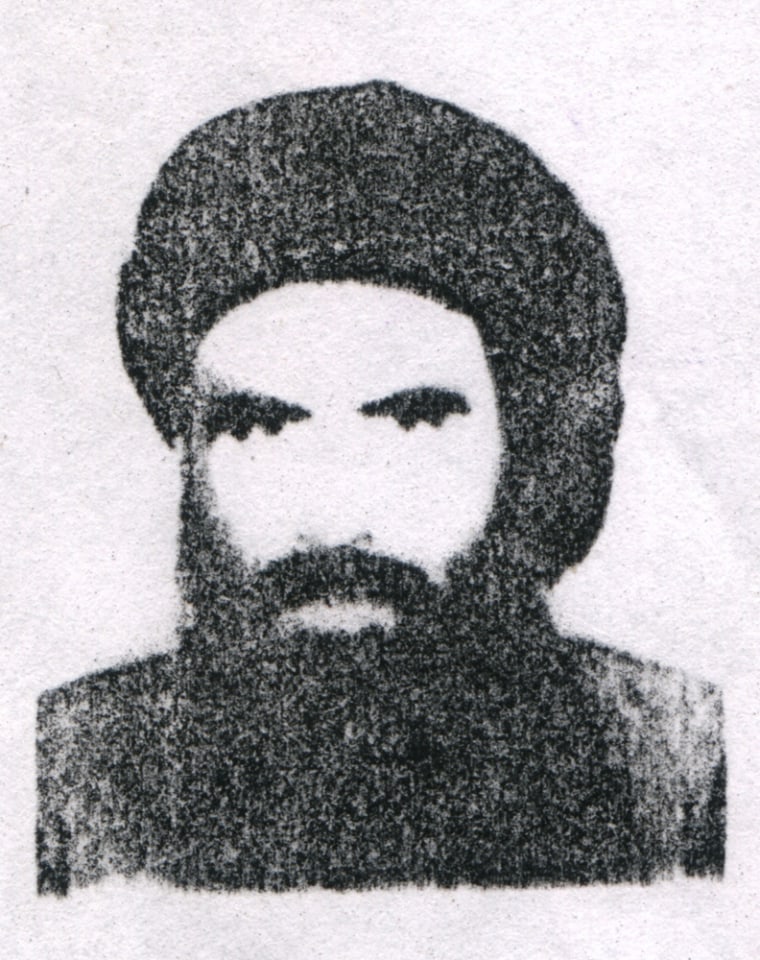Afghan Taliban leader Mullah Mohammad Omar was treated in hospital with the help of Pakistan's intelligence agency after suffering a heart attack earlier this month, the Washington Post reported.
Citing "The Eclipse Group," a private network run by ex-CIA, State Department and military officials, the newspaper said the elusive Taliban chief spent several days at a hospital in Karachi, Pakistan.
Most of the senior members of the Afghan Taliban, including Mullah Omar, fled to neighboring Pakistan when U.S.-backed Afghan forces toppled their strict Islamist regime in late 2001.
'Some brain damage' The firm said its source was a doctor, who was not identified. According to the report, Mullah Omar was "rushed" to hospital by Pakistan's Inter-Services Intelligence (ISI) agency on Jan. 7.
"While I was not personally in the operating theater, my evaluation based on what I have heard and seeing the patient in the hospital is that Mullah Omar had a cardiac catheter complication resulting in either bleeding or a small cerebral vascular incident, or both," the Post quoted the doctor as saying.
"After the operation, there seemed to be some brain damage with Mullah Omar having slurred speech," he added.
The Eclipse Group's report said that "after 3-4 days of post-operative care in the hospital, he was released to the ISI and ordered to take absolute bed rest when at home for at least several days."
It said that Mullah Omar was staying at "an ISI 'guest house' in Karachi under ISI guard."
However, Pakistan's ambassador to the United States, Husain Haqqani, denied the report.
"Sometimes intelligence tips received by professionals turn out to be wrong," he said. "The story about Mullah Omar falls under that category. You might recall a similar story from 2001 about Osama bin Laden receiving dialysis treatment that turned out to be incorrect.
"Pakistani intelligence, military and law enforcement personnel continue to hunt down wanted al-Qaida and Taliban figures and will apprehend anyone if and when we have hard intelligence, which is very different from speculation circulated by contractors."
According to the Post, the Eclipse Group is run by Duane "Dewey" Clarridge, who was the first chief of the CIA's counterterrorism center; Kim Stevens, a retired U.S. diplomat; and Brad A. Patty, a civilian advisor to the U.S. Army's 30th Heavy Brigade Combat Team in Iraq from 2007 to 2009.
Stevens told the Post that the firm's customers included "several European intelligence services."
Earlier this month, members of an Afghan peace council held talks with leaders in Pakistan, a crucial player in any future Afghan peace settlement, in the latest attempt to resolve the drawn-out and costly war.
Pakistan, long blamed for stoking the insurgency in Afghanistan to thwart rival India, is nevertheless seen as an important ally to the United States and other NATO members as they battle a worsening insurgency now in its tenth year.
Pakistan backed the Taliban until the September 11, 2001, attacks on U.S. cities. It says it has maintained some contacts but rejects accusations it backs the insurgency.
The Taliban have said repeatedly there will be no talks until all foreign troops have left Afghanistan.
According to the Congressional Budget Office, the United States spent an average of $5.4 billion a month in Afghanistan in the budget year that ended in September, and the total cost since the war began stands at $336 billion.
A record 702 of the coalition's service members were killed in 2010.
But the Afghan police and the military have also shouldered a heavy toll with 1,292 members of the police force and 806 soldiers were killed last year, according to Afghan statistics.
